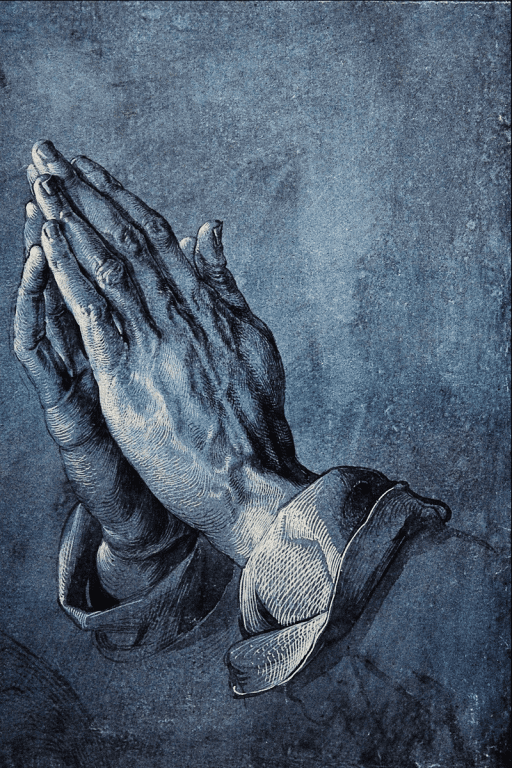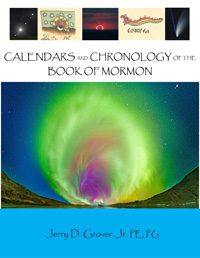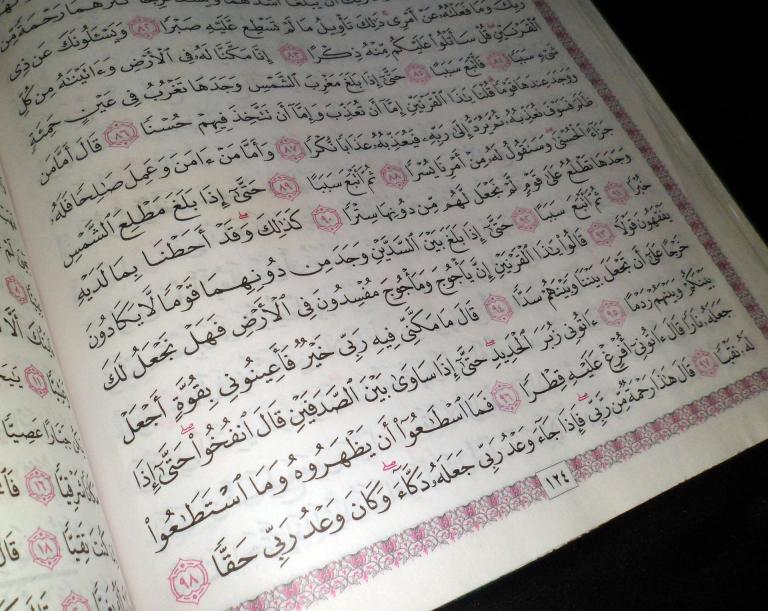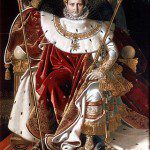
Wikimedia Commons public domain image
Meridian Magazine has just posted a new article of mine entitled “The Problem of Unanswered Prayers.” I hope that some of you will find it helpful or of interest or, at least, not objectionable.
My new article could, I think, fittingly be paired with another piece that I wrote a while back, “On Choosing Prince Charming.” And this sad but (to me) movingly wonderful story about President Jeffrey R. Holland and the tragic recent death of a young woman in Castle Dale, Utah, seems to suit the mood, as well: “Why the righteous are not spared tribulation, President Holland explains at funeral of Latter-day Saint teen: ‘Let me encourage all of you to avoid saying “what if” or “would have” or “should have” or “could have.” Faith always points forward,’ he tells grieving teens after accident”

I was pleasantly surprised, a week ago Sunday night, to have Jerry Grover drop by my house to deliver a copy of his latest book, Calendars and Chronology of the Book of Mormon. I’m excited to read it, though I haven’t had a chance to do so yet and won’t — for reasons that will shortly be apparent — have the opportunity to read it for the next month or so. (It’s a large and heavy tome.) I regret that, because the prolific and very energetic Brother Grover invariably has interesting things to say.

I received a question today in the comments section of this blog, from Bruce Cowser. It raises an issue that is often raised with me, and I think that I’ll try a hasty answer here.
Dan, I’ve long been curious to know how you view the Prophet Mohammed. In your mind, was he:
1. A man inspired by God to dictate limited spiritual truths in beautiful Arabic poetry?
2. A false prophet, skilled at synthesizing ideas and stories rumbling around in his head into beautiful Arabic poetry? Or,
3. Something else altogether?I understand that Mohammed was illiterate, and if so, was not able to study Christian and Jewish texts, but could have heard these texts read or recounted to him. Clearly he draws on biblical stories within the suras of the Quran.
The choices for explaining Mohammed may not be as binary as with Joseph Smith, but what is your take (or best guess)?
Here’s my tentative current position:
I’m inclined to regard Muhammad — that’s the spelling of his name in Roman letters that is currently favored among English-speaking Arabists, although several other spellings are entirely acceptable and although a dot under the h would be ideal — as a man who was inspired by God, though not, perhaps, fully a prophet in the Latter-day Saint sense. (However, I’m open to that possibility too.) I have authoritative support for believing that Muhammad may have been genuinely divinely inspired in such places as the Journal of Discourses (e.g., the remarks of George A. Smith and Parley Pratt at 3:28-42) and a powerfully forthright statement of the First Presidency. I will eventually publish an explanation of how inspiration might have worked in his case, based on suggestions by the late great Scottish Islamicist and biographer of Muhammad W. Montgomery Watt, who was also an Anglican priest.
If we can regard the American Founding Fathers and the great Protestant Reformers as having been in some sense inspired, as we commonly do, I can’t see what would be so difficult about granting the same status to Muhammad. But didn’t he get some things wrong, from the Latter-day Saint perspective, and so some questionable things? Yes, he probably did (although that’s a topic for separate discussion). So did the Founders. (Thomas Jefferson, for example, seems to have been a deist, and he owned slaves.) Prophethood doesn’t confer infallibility, so there seems no reason to believe that inspiration at a possibly lower level would do so.
I’m not aware of any serious student of Islam or of the life of Muhammad who believes him to have been a conscious deceiver.
As for Muhammad’s “illiteracy”: He is described in Arabic sources as ummi, which is generally taken to mean that he was illiterate. And it is true that, in Modern Standard Arabic, ummi does mean “illiterate” and ummiyya means “illiteracy.” Moreover, his purported illiteracy has become a major feature of modern Islamic apologetics. Much in the manner of Latter-day Saints discussing Joseph Smith and the Book of Mormon, Muslims will ask “Could such a man have written the Qur’an?” I am not sure, however, that descriptions of Muhammad as ummi were originally intended to claim that he was fully illiterate. Ummi is an adjective derived from the Arabic noun umma, which means something like “people” or “community.” In its original sense, I think, ummi meant “of the people,” or, in once sense, “popular.” (The important Hebrew-language writer Asher Zvi Hirsch Ginsberg [1856-1927] used the pen name Ahad Ha’am [אחד העם, lit. ‘one of the people’, from Genesis 26:10].). Compare the English adjective lay, which comes from Late Latin laicus, which comes from Greek laikos “of the people,” which in its turn is derived from laos “(the common) folk,” “the people,” “the crowd.” Which would suggest that Muhammad wasn’t illiterate but that he was a “common man,” unlearned. (I will eventually write some more about the evidence that Muhammad actually could read and write, at least on the practical level required of a seventh-century Arabian merchant.) But then, I think an unlearned Muhammad still leaves the Qur’an difficult to explain. The alleged miracle survives.
And finally, yes, I do believe that the choices for explaining Muhammad away — if that’s the path that one chooses to take; it is one that I’m not personally inclined to take — are less binary than those for Joseph Smith. Muhammad never had partners in any of his visions and revelations; Joseph commonly did. And Muhammad’s experiences didn’t involve tangible, material objects like the plates of the Book of Mormon. But the evidence for the objective reality of a set of gold plates in the story of the Book of Mormon is, in my judgment, strong and indeed virtually unassailable. And that puts Joseph in a different category, in an important respect, than Muhammad (and many others). Muhammad’s revelatory experiences can be dismissed as merely personal and subjective. ((I’m not saying that they should be.) Frequently, Joseph’s cannot.

Speaking of Islam and Muslims: What China is doing to the Muslim Uyghur minority in East Turkistan needs to be known and understood by the entire world. And these young Uyghur women in Germany are trying very hard to make that so: “Uyghur Youth Initiative video on genocide goes viral: Filmed by youth activists following a recent pro-Uyghur protest in Munich, the video has since had over 3 million views on TikTok and 7.5 million hits on Instagram.”
Happily, by the way, the oppression and genocide of the Uyghurs is not something to be found in the Christopher Hitchens Memorial “How Religion Poisons Everything” File™. Rather, it is a project undertaken by the Communist Party of China, which is blissfully free of the evils of theism and which is attempting to remove the vicious scourge of religiosity from the world.












